Why Does Caffeine Make Me Tired?
Published:
Many people wonder, "why does caffeine make me tired?" when it's supposed to provide an energy boost. In this blog post, we'll investigate the various elements that may explain why caffeine can make some people feel tired despite its supposed energy-boosting properties.
Contents:
We'll explore how developing a tolerance to caffeine can diminish its stimulating effects and lead to withdrawal symptoms that make you feel sleepy. Additionally, we'll explore how caffeine consumption can affect blood sugar regulation and insulin sensitivity, which may account for the fatigue some people experience after drinking caffeinated beverages.
Furthermore, we will examine how excessive intake interferes with sleep-wake cycle chemicals in the brain and contributes to chronic fatigue. We'll also touch upon dehydration caused by caffeinated drinks as well as added sugars found in many popular beverages that could be responsible for those energy crashes.
To conclude our exploration of why does caffeine make me tired, we will offer strategies for reducing negative effects while still enjoying the benefits of your morning cup or occasional energy drink. Stay tuned for insightful tips and recommendations!
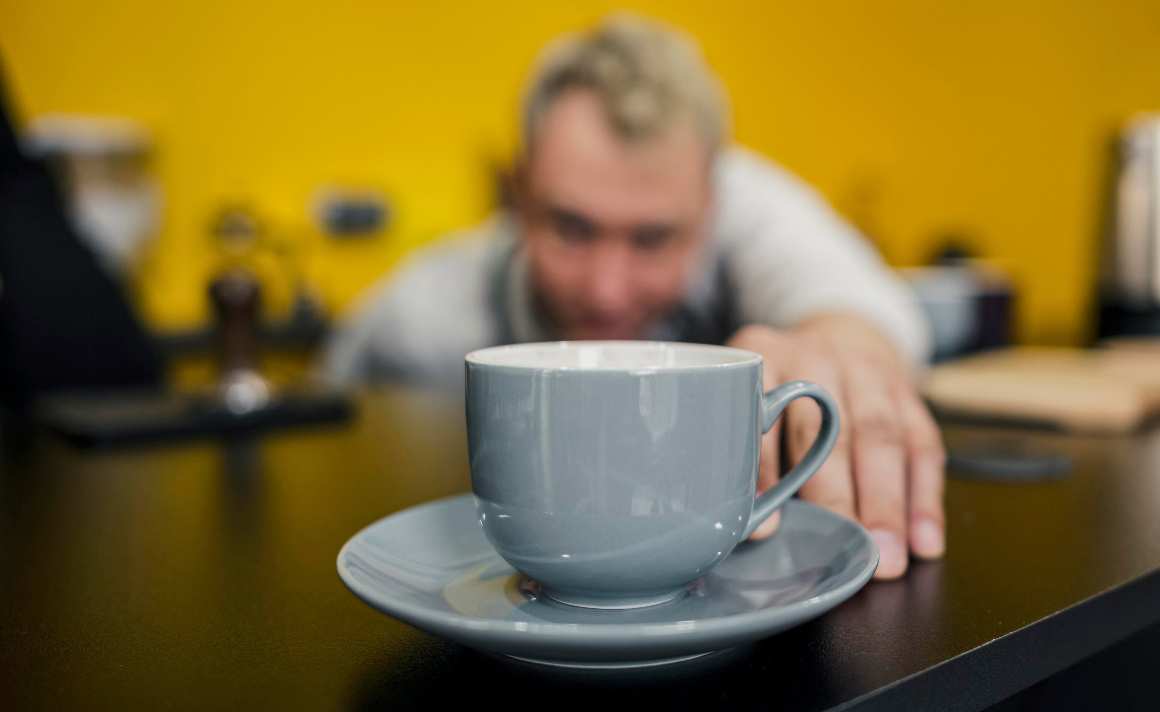
Blood Sugar Regulation Issues
Many people are unaware that their morning cup of coffee can have a significant impact on their blood sugar levels. This is due to the hidden sugars in coffee and the potential negative effects of caffeine on glucose management. In this section, we will delve into how the hidden sugars in coffee and caffeine's potential effect on glucose management may lead to post-consumption fatigue.
Hidden Sugars in Coffee Affecting Blood Sugar Levels
While black coffee itself does not contain any added sugars, many popular coffee drinks like lattes, cappuccinos, and flavored coffees often come with sweeteners or syrups that can drastically increase your daily sugar intake. These added sugars cause a rapid spike in blood sugar followed by an inevitable crash, leaving you feeling tired and sluggish throughout the day. To avoid this sugar rush, opt for unsweetened options or use natural alternatives such as honey or stevia sparingly.
Impact of Caffeine on Glucose Management
Caffeine has been shown to affect insulin sensitivity negatively, which could lead to difficulty regulating blood sugar levels properly - especially for those with diabetes or other glucose-related health issues. According to research published in Diabetes Care Journal, regular consumption of caffeinated beverages may impair glucose tolerance even among healthy individuals without diabetes.
- Morning Coffee: Drinking caffeine first thing in the morning might temporarily raise your fasting blood sugar levels due to its stimulatory effect on cortisol production - a stress hormone known for increasing both heart rate and glucose release into the bloodstream.
- Energy Drinks: These beverages not only contain high amounts of caffeine but also added sugars, which can cause a double whammy effect on blood sugar regulation and contribute to feeling tired after consumption.
To minimize the impact of caffeinated beverages on your blood sugar levels, consider implementing these strategies:
- Reduce Caffeine Intake: Limit your daily caffeine consumption by opting for smaller servings or switching to decaffeinated alternatives. Maintaining adequate hydration is critical to avoiding dehydration and reducing the possibility of insulin resistance developing in time.
- Maintain Proper Hydration: Drinking water throughout the day is essential for overall health and can help counteract some negative effects associated with caffeine intake. Be sure to drink plenty of water before, during, and after consuming caffeinated drinks to prevent dehydration that could exacerbate feelings of fatigue.
- Eat Balanced Meals: Consuming well-rounded meals with adequate protein, healthy fats, and complex carbohydrates will provide sustained energy throughout the day while helping maintain stable blood sugar levels in conjunction with proper hydration practices.
Incorporating these tips into your daily routine may help mitigate potential issues related to blood sugar regulation when consuming caffeinated beverages - ultimately reducing feelings of tiredness post-consumption.
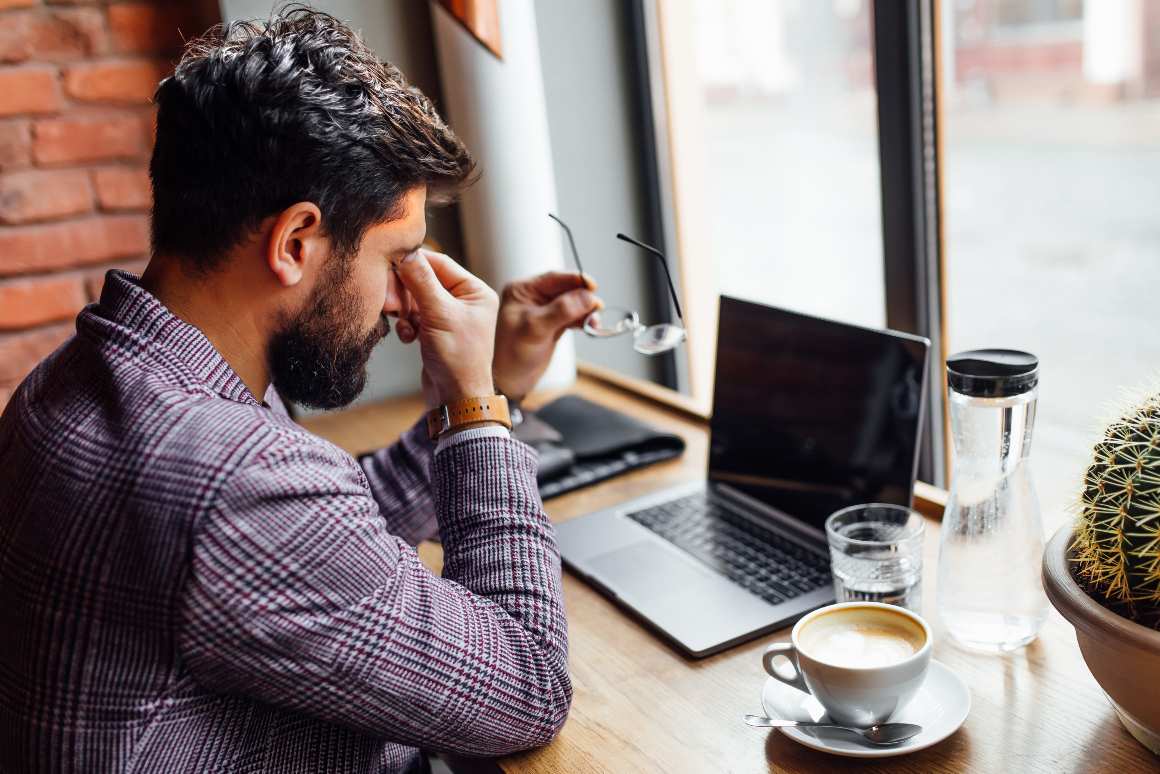
Interference with Sleep-Wake Cycle Chemicals
Caffeine interferes with the brain's ability to regulate sleep-wake cycles by blocking adenosine receptors from receiving adenosine, a neurotransmitter linked to inducing drowsiness. This interference occurs when caffeine blocks adenosine receptors from receiving adenosine - a neurotransmitter involved in promoting sleepiness. However, it's important to note that while caffeine binds to these receptors, it does not stop the actual production or formation of additional receptors. As a result, this leads to increased feelings of tiredness as well as rapid heart rate and low blood pressure.
Blocking Adenosine Receptors Causing Fatigue
The primary reason why some people feel tired after consuming caffeine is due to its effect on adenosine receptors. When caffeine enters the brain, it attaches itself to adenosine receptors, thus obstructing them from receiving signals that would usually cause drowsiness. In doing so, it prevents them from receiving adenosine signals which would normally make you feel sleepy.
This might seem counterintuitive since most people associate drinking coffee with feeling more awake; however, because your body continues producing adenosine throughout the day regardless of whether or not there are available receptors for it to bind onto - an excess amount accumulates over time leading individuals who regularly consume coffee experiencing chronic fatigue once their morning cup wears off.
Effects on Heart Rate and Blood Pressure
Beyond making people feel tired by blocking adenosine reception within their brain cells (neurons), another consequence related directly back towards consumption involves both increases within one's pulse alongside decreases regarding overall systemic arterial tension levels (blood pressure). These physiological changes can contribute further towards sensations associated with exhaustion following ingestion periods where large quantities were consumed, especially if done habitually over extended durations.
Cortisol release, triggered by caffeine intake, can lead to increased heart rate and blood pressure which may contribute to fatigue. This combination of factors may result in feeling tired after consuming caffeinated beverages, as your body tries to counteract these effects by promoting relaxation and sleepiness.
Tips for Minimizing Caffeine-Induced Fatigue
- Moderate consumption: To prevent fatigue caused by caffeine interference with adenosine receptors, it's important not to overdo your daily caffeine intake. Stick to one or two cups of coffee per day at most.
- Timing matters: Avoid drinking caffeinated beverages too close to bedtime since this can disrupt your natural sleep-wake cycle and make you feel more tired during the day.
- Stay hydrated: Drinking plenty of water throughout the day will help maintain energy levels and prevent dehydration that might contribute further towards feelings associated with exhaustion following ingestion periods where large quantities were consumed, especially if done habitually over extended durations (source).
In summary, understanding how caffeine interferes with our brain chemistry responsible for regulating sleep-wake cycles can provide insight into why some individuals experience fatigue after consuming it regularly. By moderating intake amounts alongside paying attention to proper timing and hydration practices, one should be able to successfully mitigate potential negative side-effects related directly back towards their consumption habits overall while still enjoying occasional benefits offered through its use when needed most.
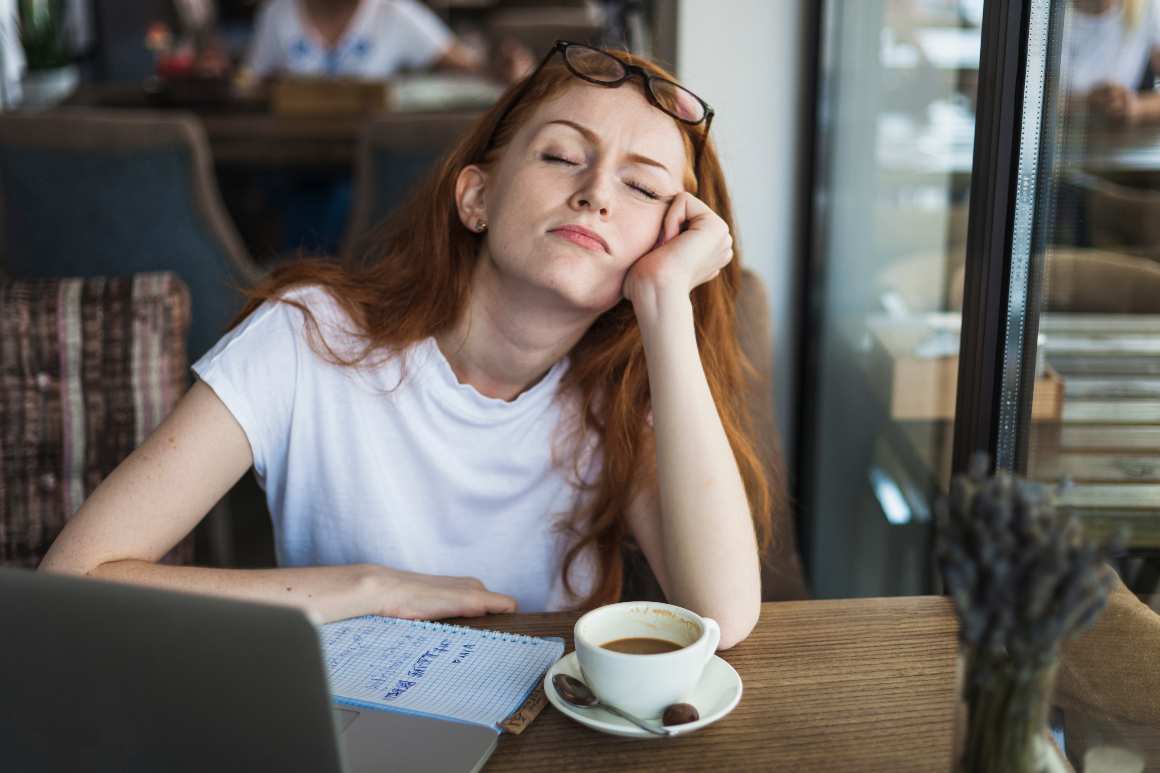
Dehydration Effects from Caffeinated Beverages
Feeling sluggish after drinking caffeinated beverages like coffee could be due to dehydration. When cells lose fluid volume, they become less efficient at performing their functions throughout the body. Caffeine's vasoconstrictive properties, which reduce blood flow by narrowing down blood vessels, can lead to cellular inefficiency as fluid volume is lost.
Vasoconstriction Impacting Cellular Function Efficiency
Caffeine acts as a vasoconstrictor, causing blood vessels to constrict and reduce blood flow. As a result, cells may not receive enough oxygen and nutrients needed for optimal functioning. This can lead to feelings of fatigue or tiredness after consuming caffeine.
Altered Blood Flow Due to Dehydration
Dehydration can further exacerbate the effects of vasoconstriction by reducing overall blood volume, making it more difficult for your heart to pump efficiently. Consequently, this may cause you to feel tired even if you regularly consume coffee or other caffeinated drinks.
To prevent dehydration-related fatigue when consuming caffeine:
- Maintain proper hydration levels: Make sure you drink plenty of water throughout the day - especially before and after drinking caffeinated beverages - to maintain adequate hydration levels that support healthy cellular function.
- Avoid excessive consumption: Limit your intake of caffeinated drinks such as energy drinks or sodas that contain high amounts of sugar and artificial ingredients known for contributing towards dehydration.
- Choose healthier alternatives: Opt for herbal teas or other non-caffeinated beverages that can help keep you hydrated without the negative effects of caffeine on your blood vessels and cellular function.
In addition to these strategies, it's essential to recognize that caffeine may not be the sole cause of your fatigue. Other factors such as poor sleep quality, stress, and an unhealthy diet can also contribute to chronic tiredness. By addressing these underlying issues alongside managing your caffeine consumption, you'll be better equipped to maintain optimal energy levels throughout the day.
If you're worried about the impact of caffeine on your wellbeing or if fatigue persists despite following the advice above, consulting a medical expert for personalized guidance tailored to your individual requirements may be beneficial.
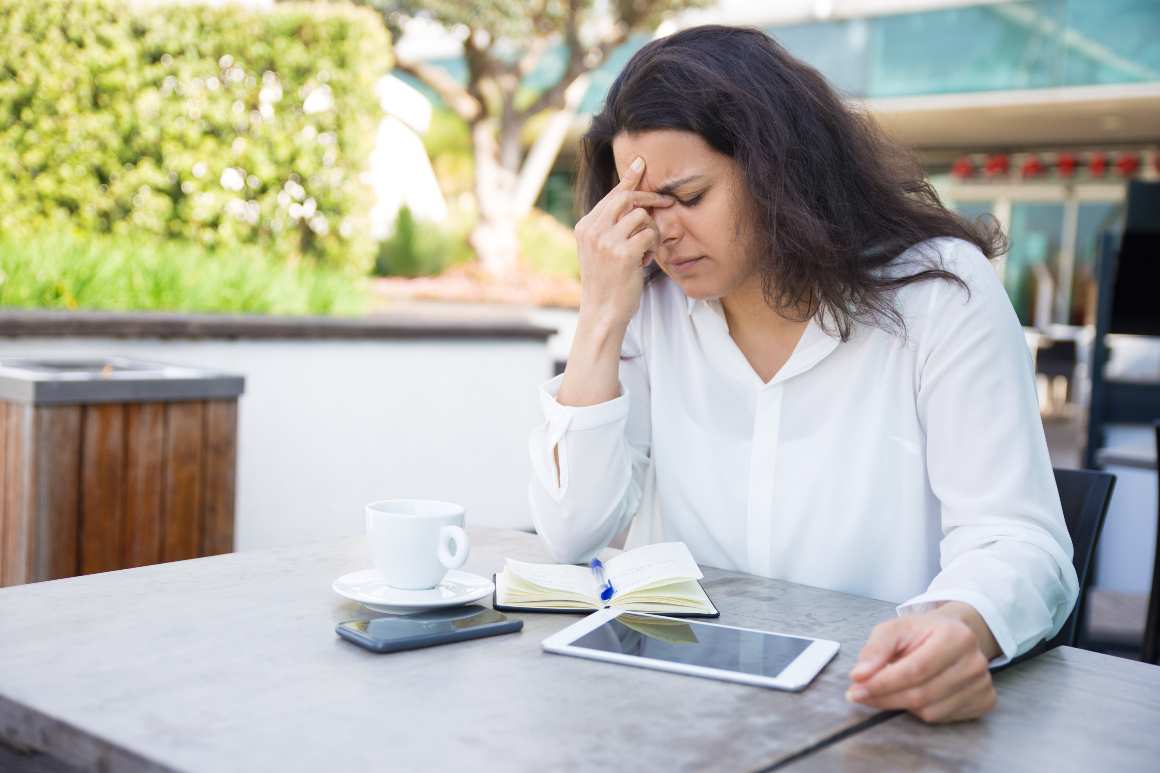
FAQs in Relation to Why Does Caffeine Make Me Tired
Why Does Caffeine Make Me Tired?
While caffeine is known for its ability to provide an energy boost, it can also have the opposite effect. Here are some reasons why:
- Caffeine Tolerance: Regularly consuming caffeine can lead to increased tolerance, meaning you need more caffeine to feel its effects. This can result in feeling tired instead of alert after drinking coffee or energy drinks.
- Blood Sugar Fluctuations: Caffeine can cause a temporary increase in blood sugar levels, followed by a crash that can leave you feeling tired and sluggish.
- Interference with Sleep-Wake Cycle: Caffeine can interfere with chemicals in the brain that regulate the sleep-wake cycle, making it harder to fall asleep and causing fatigue the next day.
- Dehydration: Caffeinated beverages can cause dehydration, which can lead to feelings of fatigue. It's important to drink plenty of water when consuming caffeine to prevent dehydration.
Does Caffeine Make People with ADHD Tired?
While caffeine is a stimulant that can increase alertness, it can have a calming effect on individuals with ADHD. This is because caffeine increases dopamine levels in the brain, which can help regulate attention and focus (source).
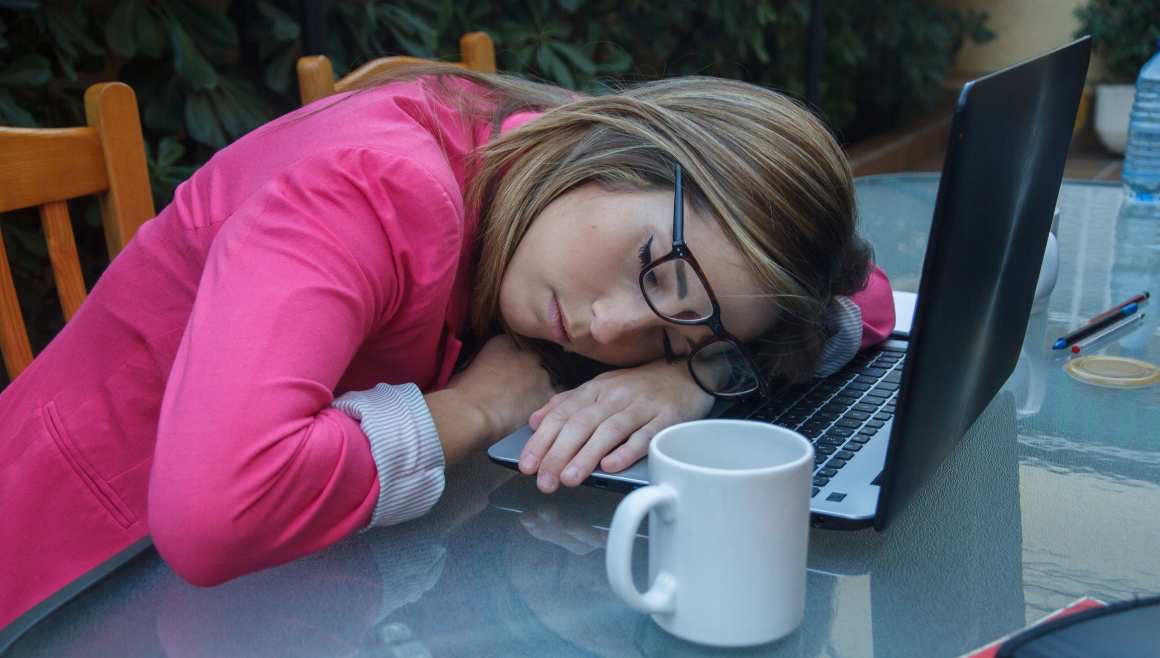
Why Doesn't Caffeine Give Me Energy?
If caffeine doesn't provide an energy boost for you, there could be several reasons why. It could be due to high tolerance or genetic factors affecting how your body metabolizes caffeine. Other reasons include poor sleep quality or insufficient hydration when consuming caffeinated beverages (source).
Conclusion
Firstly, caffeine tolerance can impact how your body responds to the stimulant. Over time, you may need more caffeine to achieve the same level of alertness, which can lead to tiredness when you don't consume enough. Additionally, caffeine can disrupt blood sugar regulation and chemicals in the brain that control your sleep-wake cycle, which can also contribute to fatigue.
Dehydration is another factor to consider. Caffeine is a diuretic, which means it can cause you to lose fluids and electrolytes. This can leave you feeling tired and sluggish, especially if you're not drinking enough water throughout the day. Finally, many caffeinated beverages contain added sugars that can lead to energy crashes and leave you feeling more tired than before.
If you're looking for ways to reduce the negative effects of caffeine while still enjoying its benefits, there are several strategies you can try. Staying hydrated, moderating your caffeine intake, and choosing healthier alternatives like herbal teas or natural supplements can all help provide an energy boost without the adverse effects.













